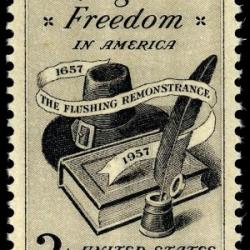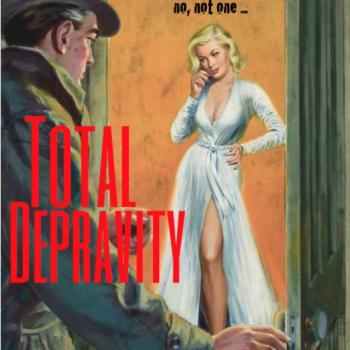J.R. Daniel Kirk reminds me of a story.
It’s a story I’ve told here before, years ago, but let me tell it again, briefly. It’s about my first marriage, which ended unhappily but began happily enough. This is a story from that happy beginning.
It was 1991 and my then-fiancée did not have a birth certificate. She’d never had one. The small Tennessee hospital in which she’d been born had had a fire and its records had been destroyed. And then there had just never been an urgent need to go through the hassle and rigamarole of getting a birth certificate.
Until now. Pennsylvania wouldn’t certify a marriage license until Tennessee certified a birth certificate, and getting Tennessee to do that while we were in Pennsylvania was proving tricky.
Six weeks before the wedding we still didn’t have a marriage license. Our good friend Father Bert — the Episcopal priest who was to perform the ceremony — was getting worried.
“We may have to postpone the wedding,” he said.
“Don’t be silly,” I told him. The invitations had been mailed, relatives had made plans, and we’d already scheduled vacation time for the honeymoon. “Who cares about a little paperwork?”
“But without a marriage license, your marriage isn’t legal,” he said. “You can’t go on your honeymoon if the marriage isn’t legal.”
Just a short time before we’d sat with Father Bert as he explained to us about the sacrament of marriage. Now he was saying that he could only administer this holy sacrament of the church if he had written permission from the county clerk’s office.
“Who cares about the license?” I said. “That’s just for, like, taxes and stuff. We can get all that sorted out later if we need to, after we get back from the honeymoon.”
My friend looked at me like I had three heads. It took us quite a while to understand one another. Eventually I said this, “You’re going to pronounce us married in the name of the Father, and of the Son, and of the Holy Spirit — do you really think that doesn’t matter unless you add the name of Gov. Casey?”
He wasn’t persuaded. There were rules and he wasn’t allowed to break them.
Fortunately (or, perhaps in hindsight, unfortunately) Tennessee came through and we got the license on time.
That’s the story I was reminded of by J.R. Daniel Kirk’s post “On Separating Church and State.” Kirk writes:
Churches marry people in the name of the state. They are therefore bound to marry only those whom the state approves to be married.
This, of course, has some ramifications for the question of [same-sex] marriage … But its ramifications reach further. For example, it leaves the church without a way to marry illegal immigrants. …
We have lived so long with pastors saying, “… and through the power vested in me by the State of _____ …” that we don’t even realize how weird that is.
Can you imagine Jesus performing a wedding and saying, “through the power invested in me by Caesar Augustus and his Governor Pontius Pilate …”?
He goes on to suggest that “pastors just stop marrying people on the state’s behalf” and stop “allowing the state to dictate whom you can and cannot join.”
Tony Jones has offered a similar argument, see: “There Are Two Marriages” and “A Call to Clergy: Stop Performing (Legal) Marriages.”
We can also come at these same matters from the opposite side of the church-state divide — from the civil perspective of civil rights and human rights and how those must apply to same-sex couples and undocumented couples as well. Here, though, I’m just focusing on the church side of the equation. How does it make sense for the church to make one of its sacraments contingent on the written permission of civil authorities? What’s next — withholding communion from anyone who cannot produce a valid driver’s license?












